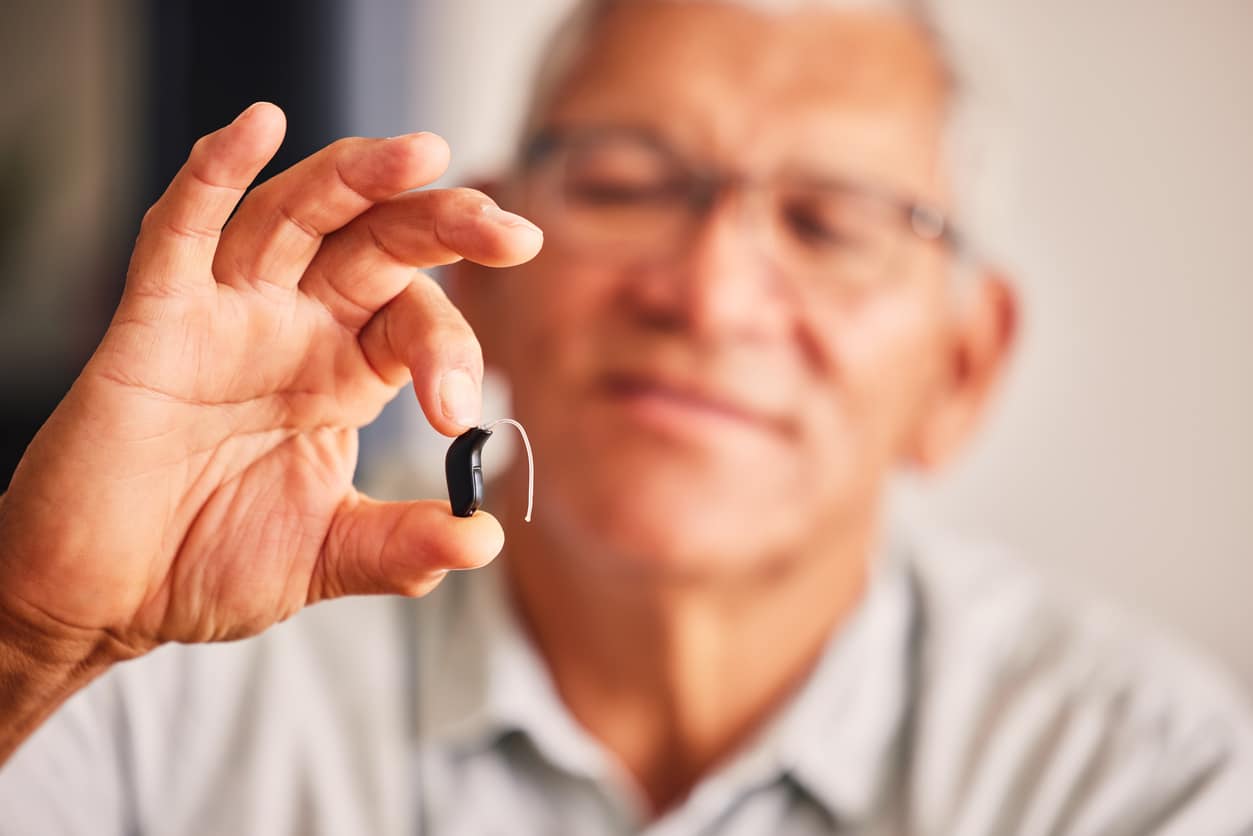Hearing aids are a remarkable piece of technology that could improve the lives of approximately 28.8 million adults in the United States alone. By collecting and amplifying speech sounds and working to reduce irrelevant background noise, these small devices are an essential part of your hearing loss treatment plan.
If you are new to hearing aids, you may be wondering how to best care for your devices. Let’s take a look at some essential dos and don’ts of hearing aid care to help you ensure your device’s longevity.
Do: Wear Your Hearing Aids Most of the Day

Hearing aids work best when you wear them consistently. In general, you should focus on wearing your devices for at least 12 hours each day, with exceptions for sleeping, showering or swimming.
Don’t: Share Your Hearing Aids
It is common for people to try on each other’s glasses or borrow a set of headphones. While seeing the world through someone else’s eyes may seem like fun, you should never repeat this practice with hearing aids. Not only are hearing aids specially tuned to your frequency needs, but they are also often custom-molded to your ears. Letting other people wear your devices can lead to damage and bacterial growth—potentially resulting in ear infections.
Do: Clean Your Devices Regularly
You may have noticed in the past that in-ear headphones invite a large amount of wax, dirt and debris. Hearing aids are no different. Wax, dirt and debris accumulation can interfere with the proper functioning of your devices and lead to distorted sound, physical damage and more. Clean your devices with a soft towel and hearing aid brush every morning or evening to prevent excess accumulation.
Don’t: Get Your Hearing Aids Wet
While most hearing aids come with a water-resistant coating, none are waterproof. This means that while small quantities of sweat are unlikely to damage your devices, heavy or frequent water contact can lead to corrosion and malfunction. Remember to remove your devices before showering, swimming or entering water balloon fights at Heritage Park.
Do: Schedule Regular Audiology Appointments
It is crucial to remember that hearing aids are not a one-time fix. They require regular adjustments to continue managing your needs effectively. During your audiology appointments, your hearing specialist will assess any frequency changes, perform necessary programming or repairs and answer any questions you might have about your new devices.
These five dos and don’ts are just a few essential tips for those new to hearing aids. To learn more about caring for your devices, contact Prescott Ear, Nose, Throat & Allergy today to schedule an appointment with one of our specialists.
